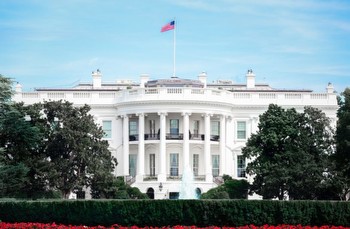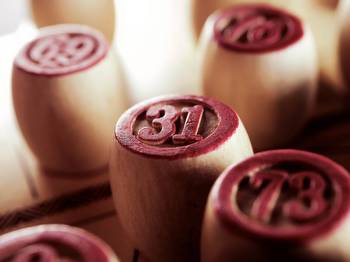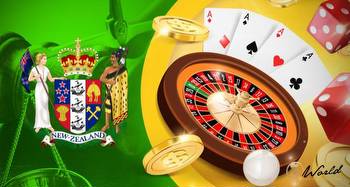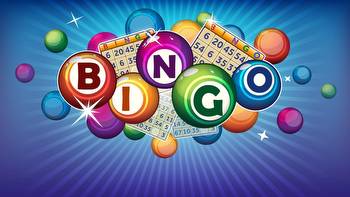The legality differentiation Bingo from other forms of gambling in the UK
Bingo is a popular game of chance that is played with numbered cards and markers. The objective of the game is to match the numbers on the cards with the numbers that are randomly drawn by the caller. The game is usually played in a social setting, such as a bingo hall, and is enjoyed by people of all ages. In the UK, bingo has a long and storied history, dating back to the 16th century when it was first played as a lottery-style game.
Gambling has been a part of British culture for centuries, and today, the UK has one of the most highly regulated gambling industries in the world. The government views gambling as a legitimate industry that can generate revenue and create jobs, but it is also aware of the potential risks associated with gambling, such as addiction and problem gambling. As a result, there are strict laws and regulations in place to ensure that gambling is conducted in a fair and responsible manner. The legal status of gambling in the UK is governed by the Gambling Act 2005, which outlines the rules and regulations that all gambling operators must follow. This Act established the Gambling Commission, which is responsible for licensing and regulating all forms of gambling in the UK, including bingo.
Bingo Defined
Bingo is a game of chance where players purchase cards that have a grid of numbers printed on them. A caller randomly selects numbers and reads them out loud. Players mark off the corresponding numbers on their cards as they are called. The first player to complete a predetermined pattern on their card, such as a straight line or a full house, yells “Bingo!” to signal that they have won. The game can be played with different variations and rules, such as the number of balls used or the patterns required to win. In addition to traditional bingo halls, the game can now also be played online or on mobile devices.
Bingo has a long history in the UK, dating back to the 16th century when it was first played as a lottery-style game called “Lo Giuoco del Lotto D’Italia.” The game became popular in the UK during the 20th century, particularly during the postwar era when it was seen as a way to provide entertainment and a social outlet for communities. Bingo halls began to pop up all over the UK, and the game quickly became a beloved pastime for people of all ages. In the 1960s and 1970s, the industry saw a boom, with new bingo halls opening up every week. However, the popularity of the game began to decline in the 1980s, and many bingo halls were forced to close. Today, while the traditional bingo hall is not as prevalent as it once was, the game remains a popular pastime in the UK, with both online and offline options available to players.
How Bingo Differs from Other Forms of Gambling in the UK
Bingo is classified as a form of gambling in the UK, but it is considered to be a “soft” gambling activity. This means that it is not subject to the same strict regulations as other forms of gambling, such as casino games or sports betting. In terms of the law, bingo is considered to be a game of chance, rather than a game of skill, which is why it falls under the category of gambling.
Bingo is regulated by the Gambling Commission in the UK, which is responsible for issuing licenses to operators and ensuring that they comply with strict rules and regulations. The Commission sets standards for fairness, transparency, and social responsibility, and it carries out regular inspections and audits to ensure that operators are meeting these standards. The Commission also has the power to issue fines, revoke licenses, and take legal action against operators who do not meet its requirements.
Bingo differs from casino games in several ways. Casino games, such as roulette, blackjack, and slot machines, are typically games of skill and chance, where the player can influence the outcome of the game to some extent. In contrast, bingo is a pure game of chance, where the player has no control over the numbers that are drawn. Additionally, casino games are often played against the house, whereas bingo is played against other players.
Bingo and lotteries are similar in that they are both games of chance, but there are some key differences. Lotteries typically involve the purchase of a ticket or a number of tickets, and the drawing of numbers at a later date. Bingo, on the other hand, involves the purchase of cards that are used in real-time play. Lotteries also tend to have much larger jackpots than bingo games, and they are often used to raise money for charitable causes. While bingo and lotteries are both popular forms of gambling in the UK, they are regulated differently and have distinct legal frameworks.
Overall, bingo occupies a unique position in the UK entertainment sites, as a form of soft gambling that is widely enjoyed by people of all ages. While it is regulated by the same authorities as other forms of gambling, it is subject to less stringent regulations due to its status as a game of chance. Despite the decline of traditional bingo halls, the game continues to be popular, both online and offline, and is likely to remain an important part of the UK gambling industry in the years to come.
The Legal Status of Bingo in the UK
The Gambling Act of 2005 is the primary piece of legislation that regulates the gambling industry in the UK, including bingo. The Act established the Gambling Commission, which is responsible for regulating all forms of gambling, including bingo. The Act sets out the rules and regulations that all gambling operators in the UK must follow, including the licensing and taxation requirements.
The Gambling Commission regulates bingo in the UK through a combination of licensing, inspection, and enforcement. All bingo operators must obtain a license from the Commission to offer bingo games, and they are subject to ongoing inspections to ensure that they are operating fairly and responsibly. The Commission also has the power to impose fines and revoke licenses for operators who fail to comply with the rules.
The Commission also has specific requirements for the conduct of bingo games, such as the number of balls used and the patterns required to win. Additionally, the Commission requires all bingo operators to promote responsible gambling and to take steps to prevent problem gambling.
Bingo operators in the UK are subject to licensing and taxation requirements. To obtain a license to offer bingo games, operators must meet certain criteria, such as demonstrating that they are financially stable and that they have effective measures in place to prevent money laundering and fraud. They must also pay an annual fee to the Gambling Commission for the license.
In terms of taxation, bingo operators in the UK are subject to a tax on their profits, which is known as the Remote Gaming Duty (RGD). The RGD is currently set at 21% for all forms of online gambling, including online bingo. In addition to the RGD, bingo operators are also subject to other taxes, such as VAT and corporation tax.
Overall, the legal status of bingo in the UK is governed by a complex set of regulations and requirements. While bingo is considered to be a form of soft gambling, it is still subject to strict rules and regulations, particularly in the areas of licensing, taxation, and responsible gambling. The Gambling Commission plays a key role in regulating the industry and ensuring that operators comply with the law, and it will continue to be a critical factor in the future of bingo in the UK.
Conclusion
In the UK, bingo is classified as a form of soft gambling and is regulated by the Gambling Commission under the Gambling Act of 2005. All bingo operators must obtain a license from the Commission and are subject to ongoing inspections to ensure that they are operating fairly and responsibly. Bingo operators are also subject to various taxes, including the Remote Gaming Duty (RGD).
Bingo differs from other forms of gambling, such as casino games and lotteries, in that it is a pure game of chance, with no element of skill involved. Bingo is also typically played against other players, rather than against the house. Additionally, bingo is subject to less stringent regulations than other forms of gambling due to its status as a form of soft gambling.
Despite the decline of traditional bingo halls, the game continues to be popular in the UK, with both online and offline options available to players. The future of bingo in the UK is likely to be shaped by advances in technology and changes in consumer preferences. However, the game is likely to remain an important part of the UK gambling industry, due to its unique position as a form of soft gambling that is widely enjoyed by people of all ages.
In conclusion, bingo occupies a unique place in the entertainment sites, as a form of soft gambling that is subject to less stringent regulations than other forms of gambling. While it is regulated by the same authorities as other forms of gambling, it remains a popular pastime that is enjoyed by people of all ages. As the industry continues to evolve, it will be important for regulators to strike a balance between promoting responsible gambling and ensuring that bingo operators are able to operate in a fair and sustainable manner.































